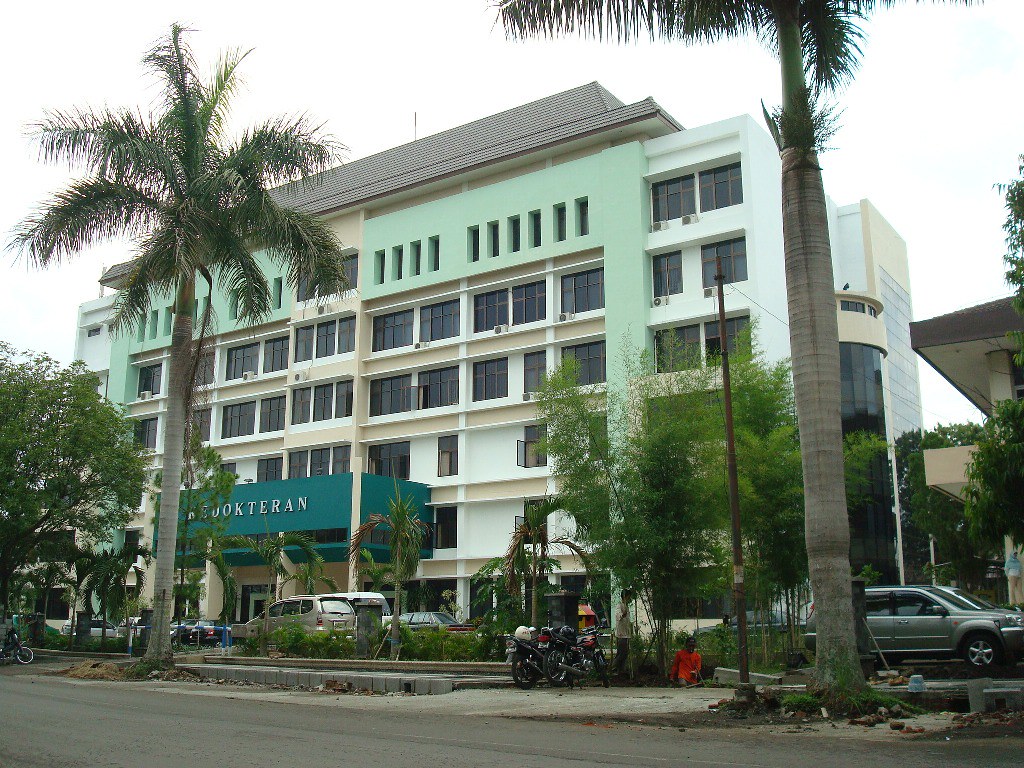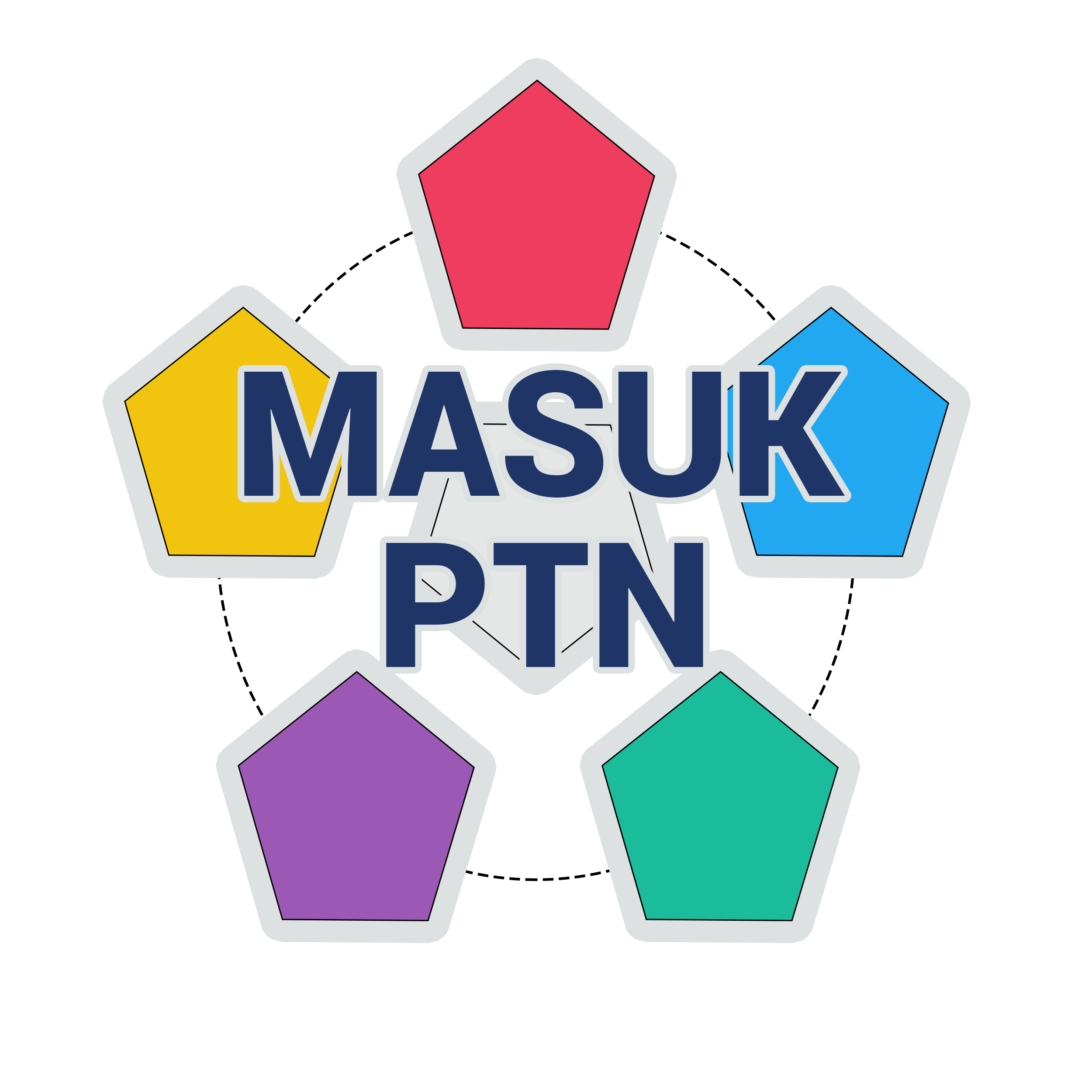SEJARAH
Faculty of Medicine University of
Brawijaya was originated from a private medical school named Malang
School of Medicine (STKM) which was established on 14 September 1963.
However, medical education activities were known 17 years ago in Malang.
Around 1946, most of the teaching staff
of the former medical school in Surabaya NIAS (Nederlands Indische
Artsen School), STOVIT (School Tot Opleidig Van Indische Tandartsen),
advanced students ex IKA Daigaku/SHIKA IGAKUBU (dentistry school at the
time of Japanese occupation) from Jakarta and Surabaya formed an
association in Malang. During the revolution and migration period this
association continued education through the establishment of the Higher
Education Institute of Medicine/Dentistry in 1946, by utilizing the
facilities of Army Hospital Division VII, now dr. Saiful Anwar General
Hospital, now RSAD Soepraoen (Soepraoen Army Hospital) Malang. From here
12 graduates of the first dentists in the Republic of Indonesia who
came from domestic university were born. In June 1947, educational
activities had to be stopped after Dutch managed to occupy Malang city.
After the transfer of sovereignty, medical education was then continued
in Jakarta and Surabaya with more complete personnel and facilities.
The Birth of PTKM and STKM. The thought to re-establish Malang
School of Medicine emerged in 1960-1962. With the support of community
leaders, the ad hoc committee of the Indonesian Doctors Association
(IDI) Malang Branch initiated the establishment of the Faculty of
Medicine Founding Committee. With the support of civilian authorities
and military in the city of Malang, the opening was officially
conducted: Medical College of Malang (PTKM) on September 14, 1963 by the
Minister of Health at the time, Mayjen. dr. Satrio, and it accommodated
105 students of the first batch. Furthermore, in March 18, 1964 PTKM
was changed and registered in the Ministry of Higher Education No.76/B.swt/P/64,
to become Malang School of Medicine (STKM), with limited education
facilities, but rich in spirit, dedication of the founders, teachers,
secretariat, students, parents, related agencies and sacrifice of the
people who became the component of medical education.
Since its establishment on 14 September 1963 to become Faculty of
Medicine University of Brawijaya (FK UB), STKM has changed its leader 5
times, starting from: Kol. dr. Sambiono, dr. G. Djauhar (surgeon), Kol.
dr. P. Mamahit, dr . G. Djauhar, and dr. M. Mudarso. STKM has ever used
secretariat office of Gaperoma, Kes.Dam Brawijaya. Lectures and
practicum activities also use the facilities of General Hospital, Army
Hospital, IKIP Malang (now UM), Department of Health, Mental Hospital of
Lawang etc. With the monitoring of private medical education by the
National Board Consortium Medical Science (NB/CMS), STKM had also
followed education evaluation process, namely E1, E2, E3a, E3B, and E4a
examination for the candidates of young medical doctor (DM), while
physician examination was performed by FK Airlangga University Surabaya.
Spirit for progress has also been demonstrated with the cooperation of
medical research (endemic goiter) in Malang with a team of doctors from
Toho University Japan. Before becoming a public institution, STKM could
only produce 31 doctors through NB/CMS exam.
Commencing on January 1, 1976 STKM received the title of Public Faculty
of Medicine and became a part of the University of Brawijaya, so the
whole process of education and examination of 765 students and 426 young
doctors subsequently were performed by 53 full-time lecturers and 36
non permanent lecturers. Before being able to construct today’s UB
Medical building complex, UB Medical building once occupied some
buildings borrowed from other faculties. The development of medical
education at the Faculty of Medicine UB goes further and this can be
proven by the accreditation assessment by the National Accreditation
Board of Higher Education (letter No.003/BAN-PT/Ak-XI/S1/2008). Today FK
UB has had: 16 Study Programs (Prodi) in specialist education, Nursing,
Nutrition Science, Dentistry, Pharmacy, and Midwifery. Besides,
Postgraduate education that is already running is: Master Program in
Biomedical Sciences, Hospital Management (MMRS ), Nursing, Midwifery,
and doctoral program in Medical Science.
Since its establishment on 14 September
until it became a public institution on January 1, 1974, the dean of
STKM had changed 5 times respectively; they were dr. Sambiono, dr. G.
Djauhar, dr. P. Mamahit, dr. G. Djauhar (second period) and dr.
Moedarso. After an uneasy struggle, finally on January 1, 1974 Decision
Letter from the Ministry of Education and Culture (Men.Dik.Bud) No.
001/0/1974 about converting STKM into a public institution was issued
and the opening was carried out by the Minister himself on February 23,
1974 in conjunction with the XI anniversary of UNIBRAW. Finally, on
January 14, 1974, Malang School of Medicine (STKM) officially joined
with University of Brawijaya and it was renamed Faculty of Medicine
University of Brawijaya (FK UB).
FKUB Secretariat
At the time of converting into public
institution FK UB physically did not have a campus. Up to 1975 FK UB
Secretariat/office was in GAPEROMA building Jl. Bromo 25 Malang. After
that FKUB Secretariat was moved to Jl. Guntur 1, occupying what is
formerly UB Central Office. The next year after UB Central Office had
been completed, FK secretariat moved again occupying drawing room
Faculty of Engineering.
Lectures and practicum
Previously lectures and practicum used
the facilities of IKIP Malang, then in 1975 FK began to use the
laboratory of the Faculty of Agriculture and Faculty of Engineering,
while the anatomy laboratory was still in RST. Soepraoen jl. Sukun. For
the classrooms, some laboratories still used rooms lent by dr. Saiful
Anwar Hospital.
Examination Implementation
The exams for level increase of FKUB
students were still performed by NB/CMS (National Board Consortium
Medical Sciences), namely E1, E2, E3a, E3B, then to be able to follow
co-assistant (DM) students must pass E4a exam.
After FKUB had permanent lecturers as many as 53 people and 36 non-permanent lecturers, NB/CMS with a letter dated July 21, 1976, No.446/DN/1976 authorized FKUB to test their own physician.
With that authority, the students at the
time of conversion into public institution (765 students with 426 young
doctors) who had passed NB/CMS-E3B exam ??could be tested by FKUB
itself and could be completed within 2.5 years. Recalling that at the
time of conversion STKM only generated 1 doctor and 30 doctors from
NB/CMS exam, it means that since 1976 all medical doctors are graduates
of FK UB.
Furthermore, in accordance with the
planning of University of Brawijaya, the building for FK was to be built
in the Southeast of the campus in Sumbersari area.
Accreditation of Faculty of Medicine
To determine its status, the Faculty of
Medicine needs to be accredited by National Accreditation Board for
Higher Education. Currently the Faculty of Medicine has been accredited
and get an A Accreditation with the letter No.003/BAN-PT/Ak-XI/S1/2008.
In the further development, in accordance with the needs of the community, FKUB opened Departments/Study Program, namely:
Nursing in 1999 (level transfer program), in 2001 accepting new students
Nutrition Science in 2004
Dentistry in 2008
Pharmacy in 2009
Midwifery in 2009
In accordance with the Rector policy
which requires that study program of Master and Doctoral degree must be
under the Faculty, so there are several Postgraduate Programs under
FKUB, among others:
Master Program (S2) in Biomedical Science
Master Program (S2) in Hospital Management (MMRS)
Master Program (S2) in Nursing
Master Program (S2) in Midwifery
Doctoral Program (S3) in Medical Science
Similarly, in the field of profession education for specialist, FKUB has had 16 specialist education programs
Program Studi
Vision
To become a leading undergraduate study program of medicine with
international standard and excellency in biomedical skills; emergency
medicine & disaster management; social entrepreneurship &
collaborative leadership in order to improve quality of life of the
community through continuous innovation in the fields of education,
research and community service.
Mission
- Organizing an outstanding medical education institution with
international standard to produce graduates who practice scientific
culture and Pancasila.
- Organizing medical education institution that produce graduates as
agents of development and dissemination regarding medical science and
technology through research and community service with excellency in
biomedical skills; emergency medicine & disaster management; social
entrepreneurship and collaborative leadership to improve the quality of
life of the community.
- Performing an excellent, equitable, and sustainable higher education management.
Values :
Professional
Carrying out the duties and authority with full responsibility based on the competency, ethics and formal regulations
Dedicative
shows a high responsibility in the
service of each individual in performing the duties and trust which is
reflected in service delivery
Futuristic
- able to develop the recent innovations and leading in the
development of science and technology in medicine, Health, Medical
Management and Public Health
- Responsive and predictive on anticipating the environmental development
Commitment and Togetherness
- Commitment contains elements of attentions and supports
- Togetherness describes any awards on the potency of individuals and
the realization that organizational success can only be achieved by
synergy of togetherness.
Excellence
- Excellence gives meaning that the organization should be able to develop the excellence of each individual
- Excellence is also oriented on institutional effort result which
should be able to build not only the institutional advantages but also
the pride of the nation
- Excellence in results must be achieved in a way that is effective and efficient
Entrepreneurship
- Soul innovative entrepreneur contains elements which are not only
business-related but also the development of research and community
service
GOAL
- To produce graduates who are outstanding and professional with
entrepreneurship spirit in order to be able to deal with the national
and international competitive challenges
- To produce and disseminate latest research in the platform of
national and international journals as well as Intellectual Property
Rights in the medical field in order to be utilized for development of
medical science, education and community services.
- To perform community service activities in the medical field and
disseminate the scientific results in order to improve the community
health status.
- To establish regional, national, and international collaboration for
institutional, educational, research, and community services
development purposes.
LAB

 MASUK PTN
MASUK PTN